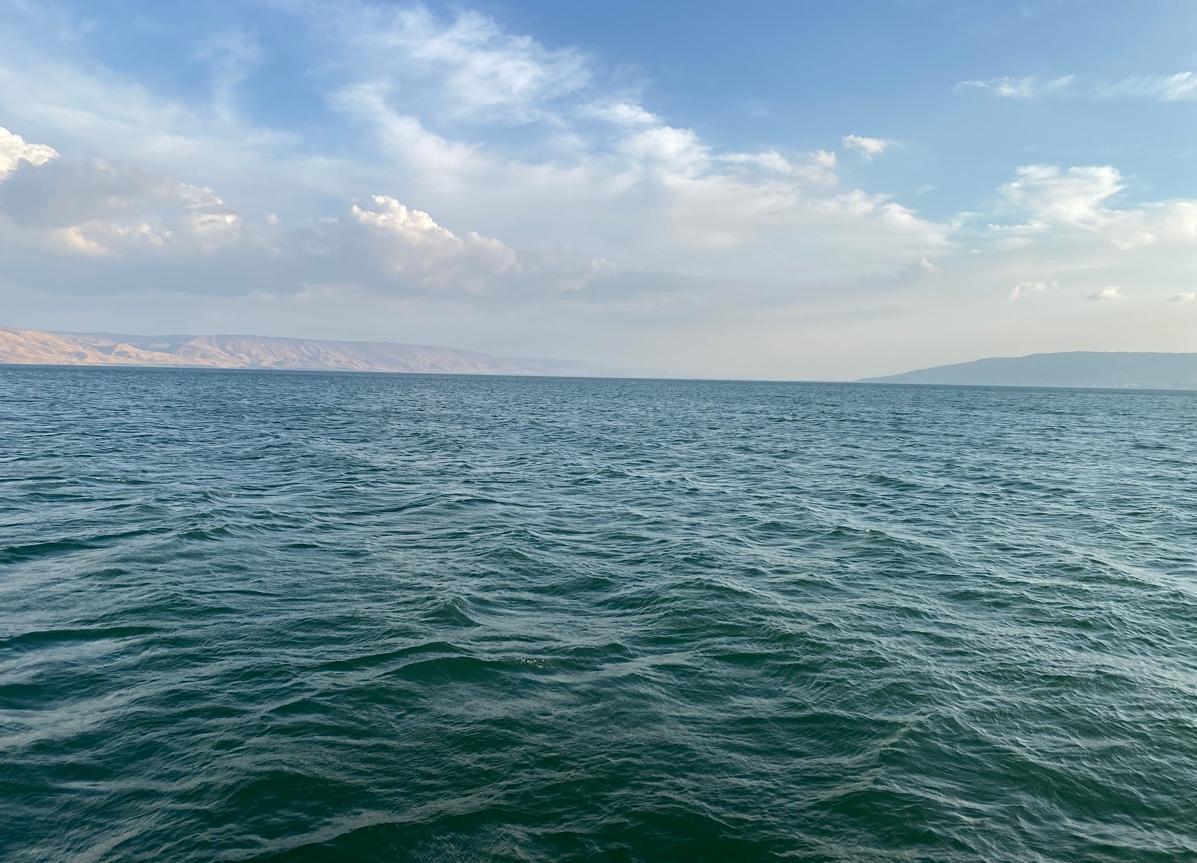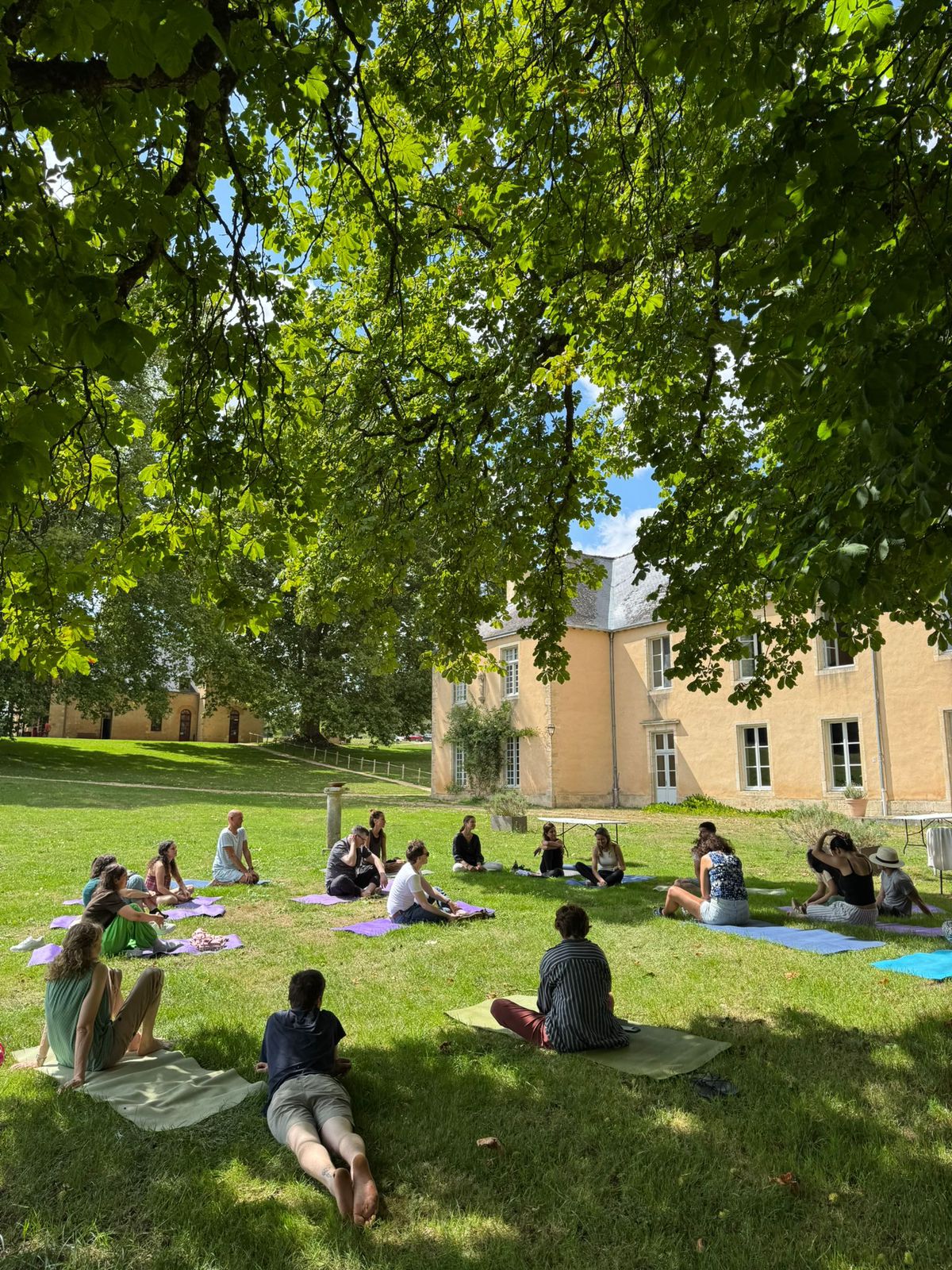To the places
Where the Word Became Flesh and Dwelt Among Us
Day 6: Shabbat Retreat at the Hotel Yehuda, Jerusalem
It seems a world away from the peace of Galilee. We were about to leave for the visits of our first day of pilgrimage in Jerusalem – including Gethsemane, the Church of the Holy Sepulchre and the Church called Dominus Flevit (the Lord wept). It immortalises the moment when Jesus wept over Jerusalem and its failure to recognise the opportunity of peace:
And when he drew near and saw the city, he wept over it, saying, “Would that you, even you, had known on this day the things that make for peace! But now they are hidden from your eyes. (Lk 19:41-42)
Instead of our pilgrimage, we learned of the horrific attacks from Gaza into Israel. This Palestine enclave has been under Israeli blockade and occupation since Hamas, the extreme Islamic government, was elected sixteen years ago. When you read the history and conditions of life there it has evidently long been a time-bomb waiting to explode. Today’s eruption was not the first and won’t be the last.
At first we felt sickened by the news, as you should when you first encounter violence. Before even trying to understand it, as one also should try to do from all sides, there is the visceral feeling of collective shame, even contagious guilt. Aggressive violence, like a disproportionate defensive response by a stronger victim, is not only a failure of the human imagination to find a non-violent solution. It is a failure of the human itself. ‘Any man’s death diminishes me, because I am involved in Mankind’ wrote John Donne in his poem ‘No Man is an Island’. Its insight is deeper than it may sound: any human failure to be human diminishes every human person.
As details of the attack spread among the hotel guests sirens sounded every few minutes and we were marched in and out of small overcrowded rooms unconvincingly called shelters. Being told what to do even for your own good when the feeling of unpredictability feels overwhelming intensifies the fear of impending chaos. As we came to sense that there were probably not going to be missiles falling on us, we considered how we should spend the hours, even days of confinement. Watching the breaking news all day did not seem what we were there for. So, we agreed to turn the time to advantage and make a retreat. There is nothing like drawing up a time-schedule to help restore order. With order comes the sense of new harmony and then, gradually, of the presence of peace: peace is the harmony of order. Not static, as John Main said in his talk on peace that we listened to before meditation, but immensely energising.
As soon as we got into a rhythm (unimposed but unopposed) we seemed both more energised and calmer which is a rare but always a good mix. We shared some personal stories of our life pilgrimage. Then I recalled Albert and Maria in Lviv telling me, ‘we are in a war but now is the time to speak about meditation’. And that John Main learned to meditate during the ‘insurgency’ in Malaya in the 1950’s. And that the birth of Jesus is more associated with violence and forced exile than peaceful domesticity.

Losing the personal connection with the contemplative side of human nature reduces the power to harmonise opposites and so propels us towards violence. I thought about the inescapable conclusion that violence and the sacred have a dark co-dependency. Not only the ludicrous fights between monks of different traditions in the Church of the Holy Sepulchre especially on the most sacred night of Holy Saturday. I am thinking of the fundamental link between sacrifice and the sacred and how almost any kind of in-humanity can be dressed up in a false religiosity to justify it as godly.
The devil is often the best quoter of scripture. So, as well as a seriously simple contemplative practice, the disarming of violence requires the art of reading scripture. Meditation and lectio are the right and left hands of peace-making ,just as they are to the restoring of the higher imagination for the exposure and restraint of violence.
The peace-process here has been dead for years and brutality has become the new norm. Is there another way? Are there other skilful means common to all spiritual traditions in their deeper wisdom? A small group of meditators from different countries, of one faith and different complexions of belief, does not have the means to undo such embedded dualities and divisions.
But perhaps every contemplative in the world helps to make a mirror of humanity which can arouse the imagination to see, if only for a transformative moment, ourselves, our friends and our enemies as the image of God.

Receive these in your inbox
Follow Laurence’s daily updates from WCCM Contemplative Journey to the Holy Land (2 – 11 October) by signing up to Daily Wisdom, a free email subscription that delivers a short, contemplative insight to your inbox every morning.





